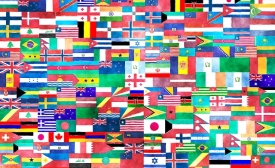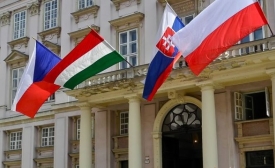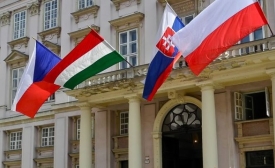public diplomacy

Simon Anholt has recently established a new method to evaluate a country's reputation and image. The Good Country Index measures "what each country on earth contributes to the common good of humanity, and what it takes away." Various factors are considered in the evaluation including: science and technology, culture, international peace and security, world order, planet and climate, prosperity and equality, and health and wellbeing.

Professor Nicholas J. Cull remembers Walter R. Roberts, who passed away on June 29, 2014.
Assessing the success of Brazil’s hosting of the World Cup 2014 and Olympic Games 2016 will pivot on more than positive net income metrics and avoiding a stadium infrastructure legacy of white elephants. The aspiration of hosting mega-sport events such as the World Cup is often justified in terms of nation branding. In the case of Brazil, successful nation branding will mean that by hosting a World Cup, Brazil will create and generate certain – hopefully favorable – national images.
As negotiators from Iran and the P5+1 nations meet behind closed doors in Vienna in a final push for a comprehensive nuclear deal, a separate round of negotiations is taking place online. Secretary of State John Kerry and his Iranian counterpart, Foreign Minister Javad Zarif, traded accusations, praise, and hopeful words in advance of the final round of nuclear negotiations. The two sparred in a pair of op-eds published in the The Washington Post (Kerry) and Le Monde (Zarif), and in a video Zarif made available on YouTube.
A visiting American chef yesterday demonstrated his cooking skills in Taipei as part of the U.S. Department of State's Diplomatic Culinary Partnership launched to promote culinary engagement around the world. At a cooking demonstration held at Kai Ping Culinary School yesterday afternoon, American chef Bryce Gilmore made his signature dish, the “pork belly slider,” in front of 32 students of the school.
The Nigerian government has signed a contract worth more than $1.2 million with a Washington DC public relations firm to deal with the fallout from the Boko Haram kidnappings. In a report in The Hill, documents show that the Nigerian president, Goodluck Jonathan, who is up for re-election in February, is seeking to counter the perception that he has not done enough to combat the Islamic extremists in his country who abducted more than 270 schoolgirls in Chibok in April.


An effective Central European public diplomacy means opening up to new partnerships.







